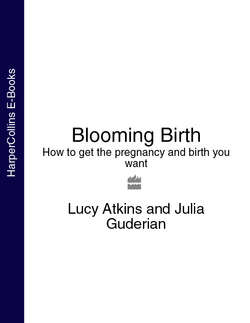Читать книгу Blooming Birth: How to get the pregnancy and birth you want - Lucy Atkins - Страница 26
Weight charts and what to do with them
ОглавлениеIn the US, where I had Sam, my second baby, they stuck me on the scales at every antenatal appointment. At one point, I found myself apologizing to the nurse for my excessive bout of chocolate muffin-induced poundage. In Britain, doctors and midwives have realized that being constantly weighed has little medical benefit and causes many women undue anxiety and guilt. As obstetrician Lucy Chappell puts it: ‘You don’t weigh an oven to see if the cake is done.’ Your midwife usually asks your pre-pregnancy weight at your booking in appointment but is unlikely to weigh you after this unless there’s a medical reason to do so. As a rough guide don’t weigh yourself more than once a week.
How much weight you ‘should’ gain over the next nine months will depend on how fat or thin you are in your unimpregnated state. As a rough guide, if your pre-pregnancy Body Mass Index,6 is in the ‘ideal’ range, you might gain about 25–35lb over the pregnancy. Very roughly this means a gain of about 3–6lb in first trimester, about 1lb a week in second and third. Loads of women gain far more than this, and lose it (albeit annoyingly slowly) afterwards. Do not succumb to the tyranny of weight charts: gain what is right for you. If you are already overweight doctors say you should gain slightly less than the average. If you are underweight, they say you should gain more. If you’re worried about your rate of weight gain either way, talk to your doctor/midwife. For example, a really rapid weight gain (more than about 2lbs a week) could be an early sign of pre-eclampsia (pregnancy-related high blood pressure) if it is caused by fluid retention.
